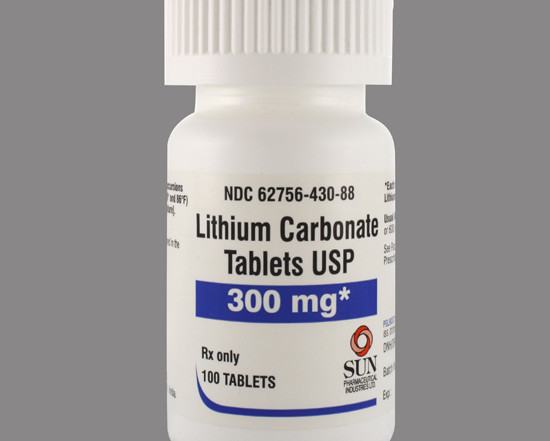Bipolar Disorder Treatment
Struggling With Symptoms Of Bipolar Disorder?
Have you recently been diagnosed with bipolar disorder or manic depression? Are you taking medication for your condition but find you’re still unable to keep your mood stable? Do you think you might have bipolar disorder but have never been professionally evaluated?
Maybe you’ve noticed that maintaining stable relationships has become increasingly difficult because others easily misunderstand your actions when your mood fluctuates. You might have observed that you go through manic episodes, during which you engage in actions that you later regret. You may find yourself overflowing with energy or taking on too many tasks simultaneously, which can be uncomfortable.
Conversely, you may have experienced depressive episodes throughout your life. While mania might feel good, depression can be crippling, making you prioritize addressing depression over mania.
Right now you may feel stuck and like no one can help you because they don’t understand your experiences. Living with bipolar disorder can be scary and often isolating. If left untreated, it can have devastating effects on your life. But the good news is that it is much more treatable than you may think!

If You Experience These Signs And Symptoms You May Have Bipolar Disorder
Enduring bipolar disorder can be an overwhelming journey with a myriad of symptoms that vary from person to person. Maybe you’ve been experiencing the following
When depressed:
- Feeling overwhelmed, sad, or exhausted
- Hopelessness
- Disinterest in activities
- Changes in sleeping patterns, weight, or eating habits
- Difficulty focusing on work, relationships, or recreation due to negative thoughts and feelings
When manic:
- Decreased need for sleep or having excess energy despite not sleeping much
- Feeling euphoric, elevated, expansive or energized
- Irritable
- Engaging in risky, unnecessary activities
- Overspending and the inability to control it
- Risking relationships or health with sexual indiscretions
- Increased irritability or anger
- Rapid speech or inflated ego
- Restlessness
- Racing thoughts
- Hallucinations, bizarre ideas, or unusual behavior noticed by others
You are not alone. You are strong for having endured the frustrations of your condition. I want you to know that Mindful Counseling Solutions acknowledges your struggle with bipolar disorder and can offer you the support, tools, and expertise you need to properly manage your symptoms.
Contact Me
You’d Be Surprised At The Prevalence Of Bipolar Disorder
Sometimes in life, we all experience fluctuations in our moods or experience circumstances where we don’t quite feel like ourselves. However, when these mood swings become debilitating, interfering with our daily lives and relationships, it may be indicative of something more serious going on.
Bipolar disorder is more common than you’d think. Recent studies suggest that approximately 2.8 percent of adults have experienced bipolar disorder, with an estimated 4.4 percent experiencing it at some point in their lives. (1) Despite its significant impact, the disorder often remains undiagnosed or untreated.
Bipolar Disorder Is Heavily Influenced By Your Genetics
Bipolar disorder is predominantly genetic—it is not a result of personal fault. People with a family history of bipolar disorder are at a higher risk of developing the condition themselves. While symptoms typically manifest in late teenage years, mood episodes can occur at any time.
However, not everyone with a family history of bipolar disorder will develop the condition, which suggests that other factors, such as environmental stressors or life events, also play a role in its onset.
Additionally, environmental factors can also play a major role in exacerbating bipolar tendencies. Being exposed to high-stress environments, traumatic events, substance use, and abuse can worsen the symptoms of the disorder.
Treatment can help you experience relief from bipolar disorder. Together, we can create a life that feels vital and meaningful. There are proven ways out of what may feel like an endless struggle with your condition.
Bipolar Disorder Treatment Can Help Restore Your Sense Of Purpose
Bipolar disorder treatment offers a safe and supportive environment where you can share your thoughts and feelings without fear of judgment. Within this space, we will explore the intricacies of your condition so you can gain insight into the factors contributing to your mood and behavioral patterns.
I will meet you with compassion and expert guidance, validating your experiences in this space. During sessions, you will be equipped with practical coping strategies and skills to effectively navigate daily challenges.

My Approach To Bipolar Disorder Treatment
Acceptance and Commitment Therapy (ACT) and Dialectical Behavior Therapy (DBT) are two therapeutic modalities that have proven effective in my treatment of bipolar disorder.
Acceptance and Commitment Therapy (ACT) incorporates mindfulness practices so you can learn to make space for uncomfortable thoughts and feelings rather than trying to suppress or avoid them. With ACT, you will identify your values and what matters the most to you, as this enhances motivation and commitment to pursuing purposeful life directions despite the challenges of your disorder. It also teaches you skills to help you distance yourself from distressing thoughts and beliefs. By recognizing that thoughts are not facts—but opinions—you can reduce how negative thoughts impact your mood and actions.
Dialectical Behavior Therapy (DBT) uses strategies of distress tolerance to regulate mood swings and prevent impulsive behaviors during periods of emotional dysregulation. This approach emphasizes coping skills for tolerating distressing situations without resorting to self-destructive behaviors. I will also teach you self-soothing and radical acceptance techniques to help you navigate crises and reduce the risk of actions you may later regret.
I use a wellness and holistic approach to bipolar disorder, emphasizing lifestyle factors such as nutrition, exercise, sleep, and social support networks. These elements play a crucial role in maintaining stability and resilience in the face of bipolar disorder. This approach helps empower you to take an active role in your healing journey.
Treatment can provide significant relief from the symptoms of bipolar disorder. While navigating the challenges of bipolar disorder may seem daunting, you are not alone in your journey, and there is hope for peace of mind.
Perhaps You Still Have Some Questions About Bipolar Disorder Treatment…
Recent Posts
A Bipolar Disorder Medication Guide
Medication is the most important aspect of treatment for Bipolar Disorder (BD), but can be confusing, overwhelming, or even scary.
Sleep Tips for Bipolar Disorder, Anxiety, Depression, and ADHD
Sleep is essential for consistent mood, focus, and energy levels. This is particularly important for people with bipolar disorder, anxiety, depression, and ADHD.
Symptoms of Mania in Bipolar Disorder
Many of my clients who have a recent or long-standing diagnosis of bipolar disorder have a hard time understanding why they've been diagnosed with the condition in the first place.



